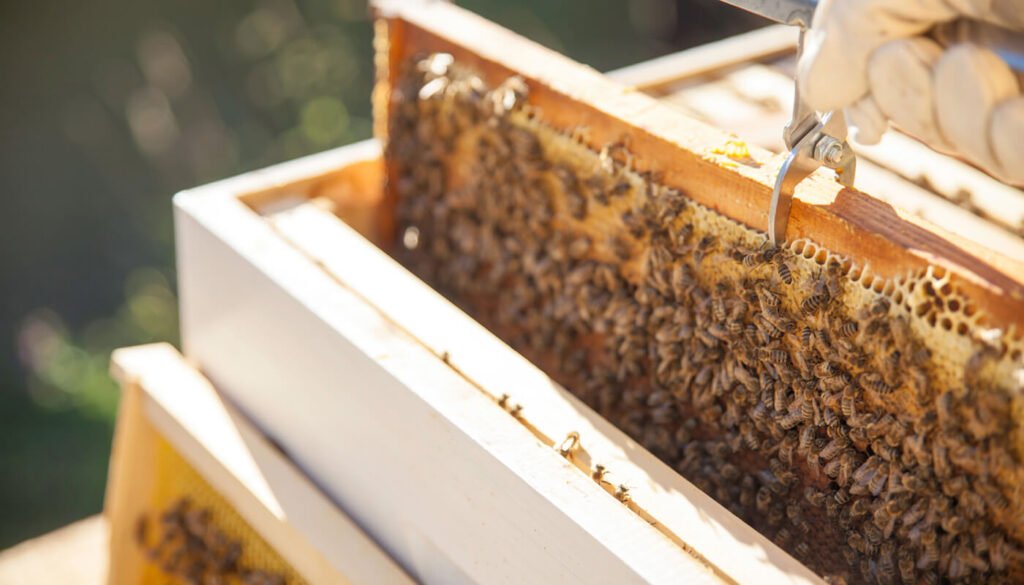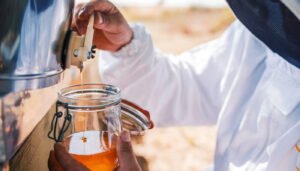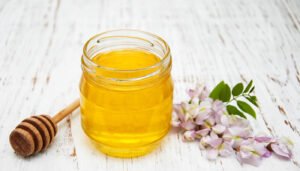Propolis, sometimes referred to as “bee glue,” is a resinous substance that honeybees collect from various plant sources. The bees mix the collected resins with beeswax, saliva, and pollen to create propolis. They use this sticky substance to seal and protect their hives, filling in small gaps and cracks. Propolis has several functions within the hive:
- Structural Integrity: Bees use propolis to reinforce the structural integrity of the hive. It helps to seal and strengthen the hive, making it more durable and weather-resistant.
- Hygienic Properties: Propolis has natural antimicrobial and antifungal properties. Bees use it to coat the interior of the hive, creating a protective barrier against pathogens. This helps to maintain a sterile environment within the hive and protect the colony from diseases.
- Mummification: In some cases, bees use propolis to mummify intruders or small animals that find their way into the hive. The antimicrobial properties of propolis help prevent the decomposition of these unwanted guests, effectively preserving and isolating them within the hive.
- Temperature Regulation: Propolis is also involved in regulating the temperature within the hive. By sealing small openings, it helps to maintain a consistent temperature, especially during colder seasons.
- Wound Healing: Bees use propolis to repair and seal small injuries or cracks in the hive. The propolis acts as a natural glue, promoting healing and preventing the entry of pathogens.
- Chemical Defense: The chemical composition of propolis can vary depending on the plants the bees collect resins from. It may contain a mix of compounds with potential medicinal properties, serving as a form of chemical defense for the hive.
In addition to its uses within the hive, propolis has gained attention for its potential health benefits for humans. It has been used in traditional medicine for its antimicrobial, anti-inflammatory, and antioxidant properties. Some people consume propolis as a supplement, and it is also found in various health and cosmetic products.
It’s important to note that while propolis has promising properties, scientific research is ongoing to better understand its potential benefits and applications for human health. If you are considering using propolis for health purposes, it’s advisable to consult with a healthcare professional for personalized advice.
Worker bees are the most numerous and versatile members of the colony. Their tasks change as they age. Young worker bees clean and tend to the brood (eggs, larvae, and pupae), while older workers forage for nectar and pollen, produce beeswax, build honeycomb, and defend the hive A honey bee colony consists of three main types of bees.







